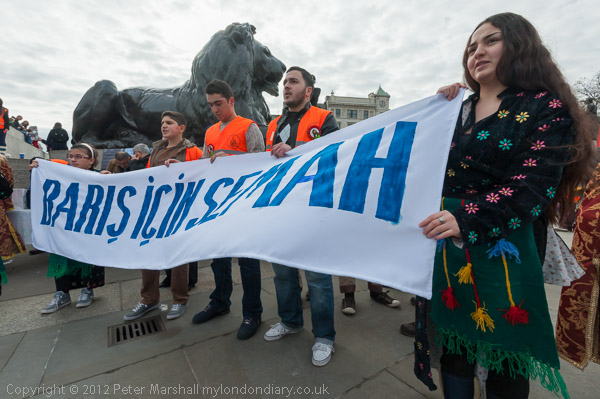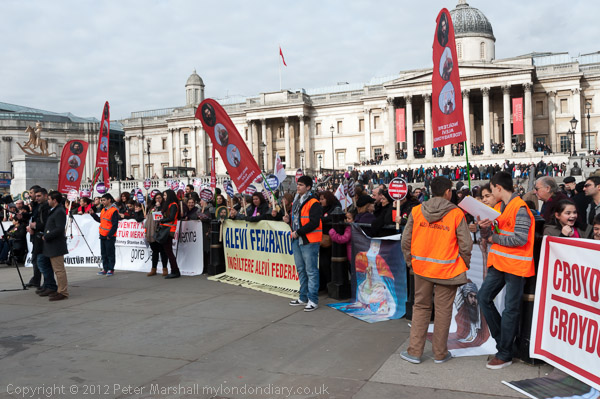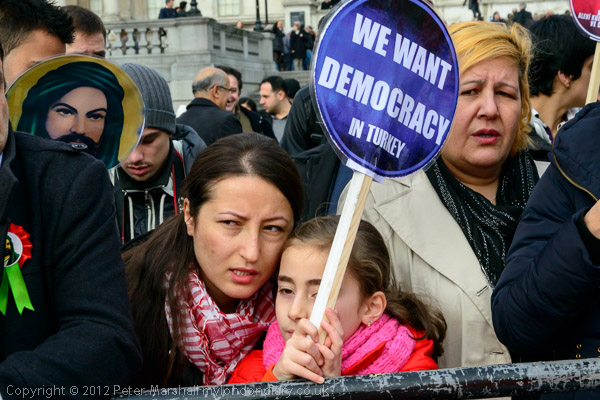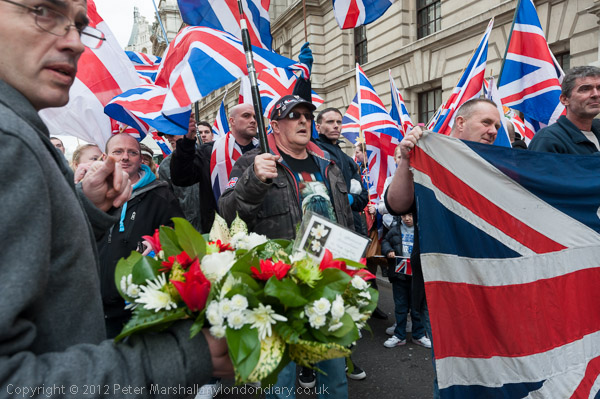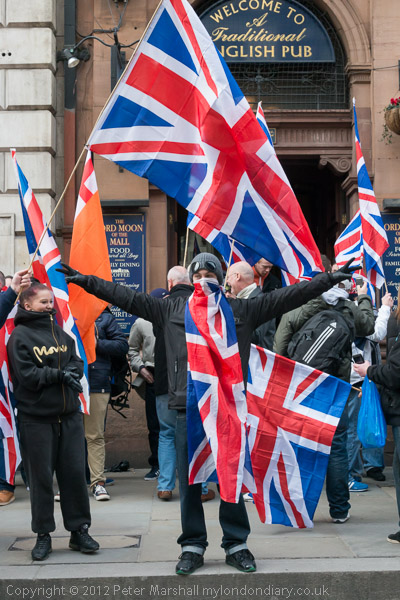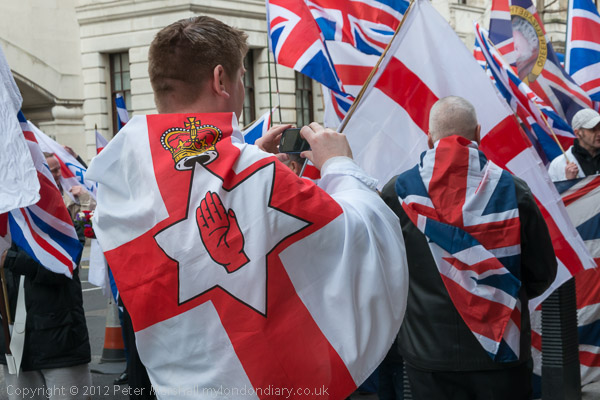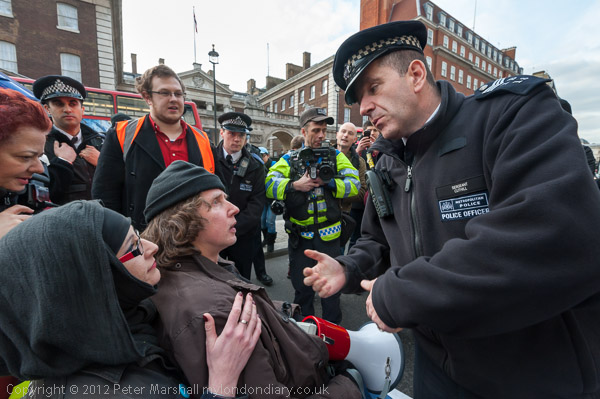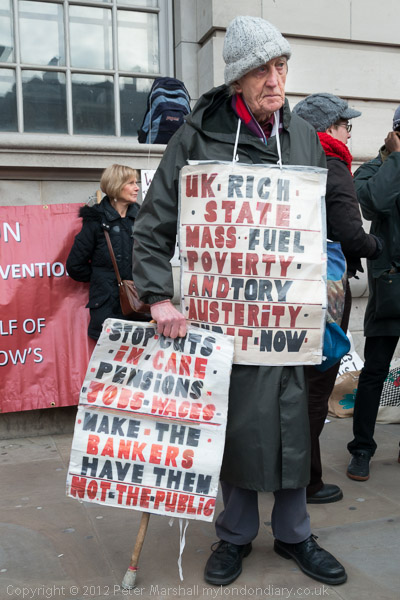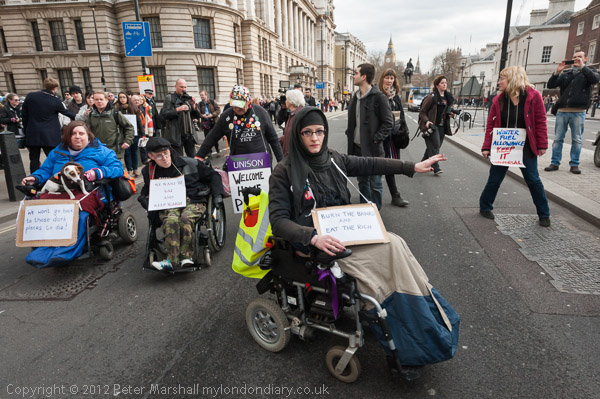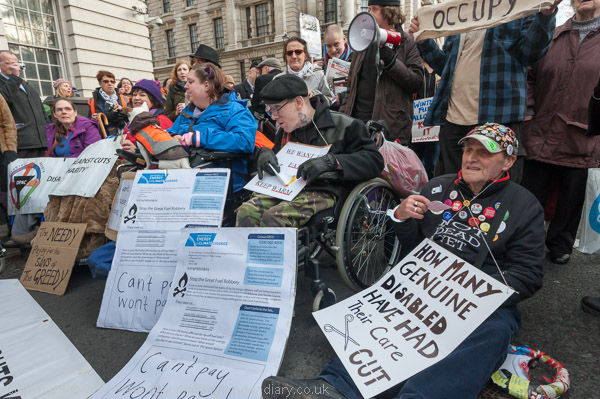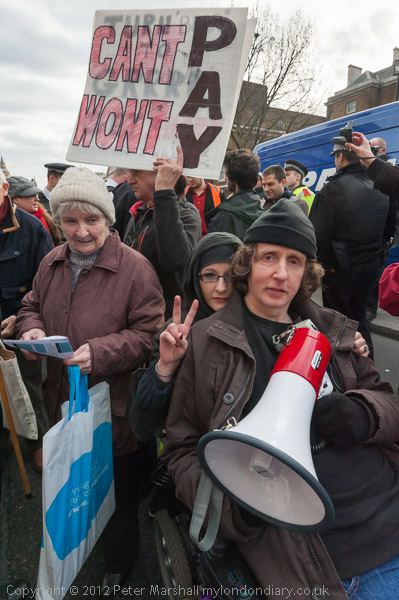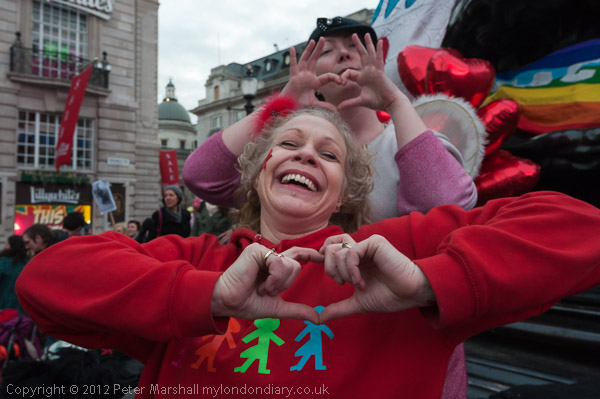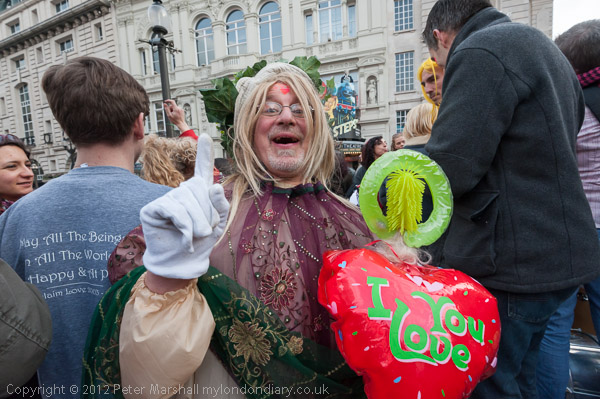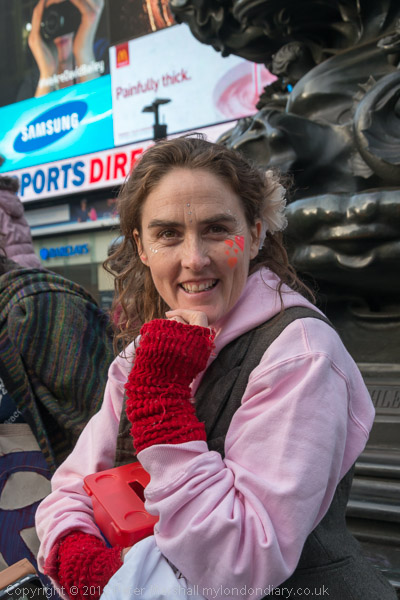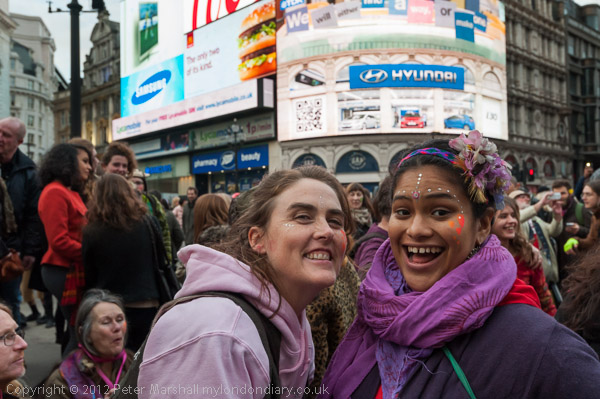Smiley Culture & Orange Order: On Saturday 16th April I photographed two very different marches in London. The first was by several thousand people, mostly black, in protest over the death of reggae star Smiley Culture during a police drugs raid on his home and later I took pictures of the annual parade in Westminster by the City of London District Loyal Orange Lodge.
Who Killed Smiley Culture?
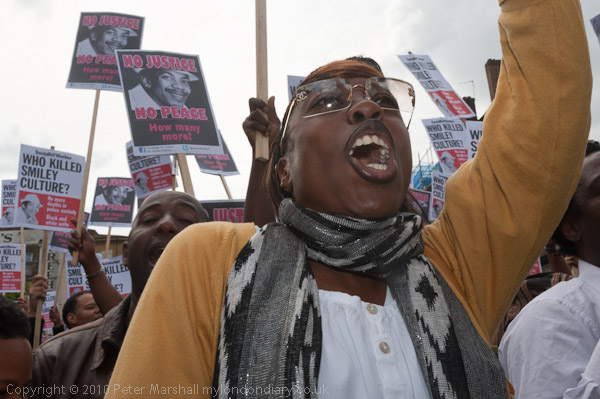
On 15th March 2011 police raided the South Croydon home of reggae star Smiley Culture at around 7am, apparently in relation to a drugs charge on which he was due to appear in court shortly. An hour and a half after their arrival, he is alleged to have been allowed to go into his kitchen alone to make a cup of tea, and to have killed himself with a single stab to the heart.
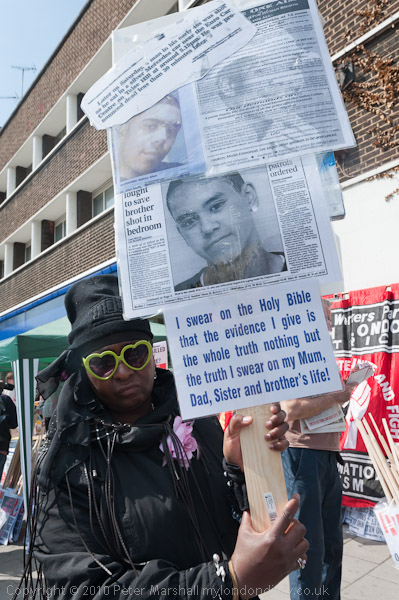
As many commented, it seemed a most unlikely story. Surely police would “not have allowed a man they had arrested to go alone into his own kitchen, where apart from the possibility of escape they would also know there would be dangerous weapons. And killing oneself with a single stab wound to the heart is not an easy task. His family and friends are sure there was no reason why he should have wanted to commit suicide.”
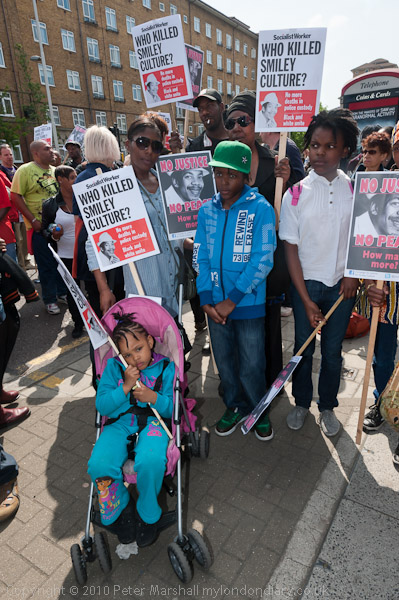
In April 2011 the case was being investigated by the Independent Police Complaints Commission and their report went to the coroner. At the inquest in 2013 the jury were unable to reach a unanimous verdict but the coroner accepted a majority verdict that the death had been suicide, while criticising the police for their lack of care and the IPCC for faults in their investigation.
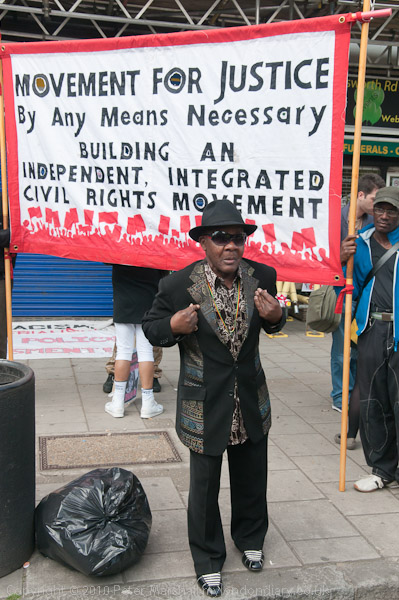
Wikipedia reports that at the request of the coroner the IPCC report “was neither made public nor made available to Emmanuel’s family” and questions remain about the actual circumstances of his death and of the IPCC’s statement “that there was neither criminal conduct by officers, nor individual failings by officers that might amount to misconduct.“
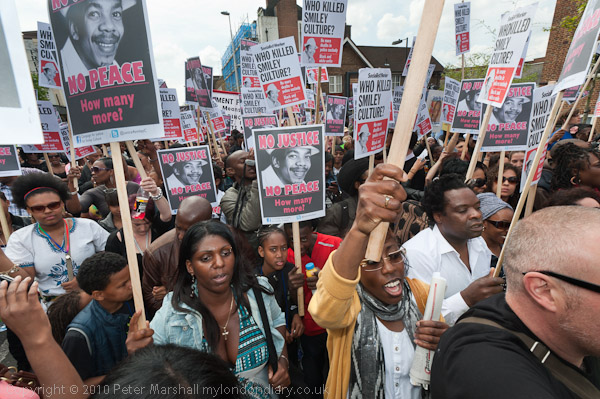
As I pointed out in my post, “Deaths in police custody are unfortunately not rare, and according to Inquest, in the twenty one years since 1990 there have been a total of 930, with 247 of these in the Met area.“

I went on to say that few of these cases get “more than a short paragraph in the local press” unless as in this case they involve celebrities or take place in public with witnesses and often videos of the event; “most of them take place in the secrecy of the police station or other premises with police officers as the only witnesses.“

Among those taking part in this march were families whose sons and brothers also died while in police custody, and in my post on My London Diary I mentioned some of these. The march took place on the “anniversary of the death of David Oluwale, killed in the first known incident of racist policing in 1969; his death remains the only case in British history that police officers have been found guilty of criminal offences leading to the death of a suspect, although they were found guilty only of assaults, the judge ordering the charge of manslaughter to be dropped.”

The death of Smiley Culture was one of several cases identified as a contributing factor to the riots later in the year after the police shooting of Mark Duggan by a study led by the LSE and The Guardian.

In February 2025 a blue plaque was unveiled outside Smiley Culture’s home from 1976-1980 on the Wandsworth Road, close to where this march began, celebrating his contributions to music and culture.
More about the march and rally and many more pictures on My London Diary at Who Killed Smiley Culture?.
Orange Parade in London
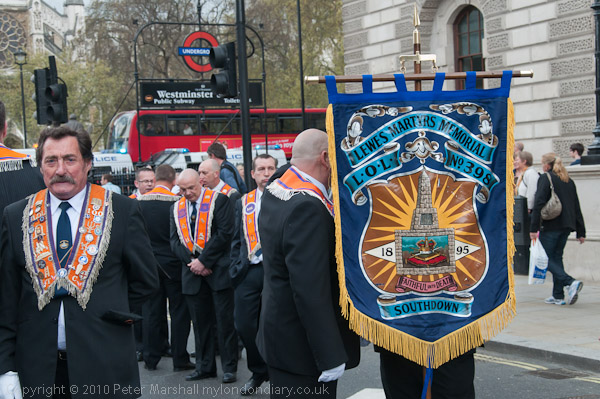
The City of London District Loyal Orange Lodge (L.O.L.) led their annual parade through London with lodges and bands from around the country taking part.
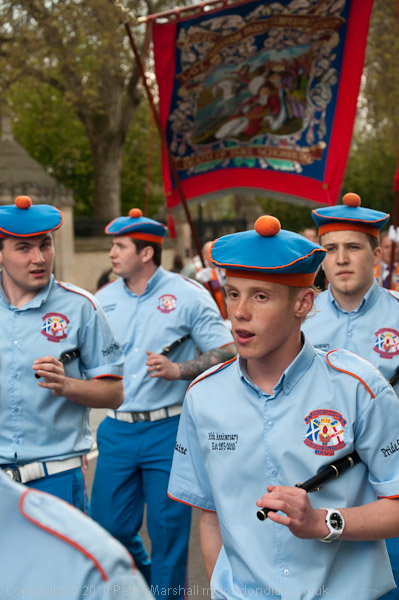
Founded in 1796 to uphold the Protestant religion, the Orange Order was was revived in the early twentieth century to oppose Home Rule for Ireland, and still plays a powerful role in Northern Ireland politics and government, embedded in Unionist politics.
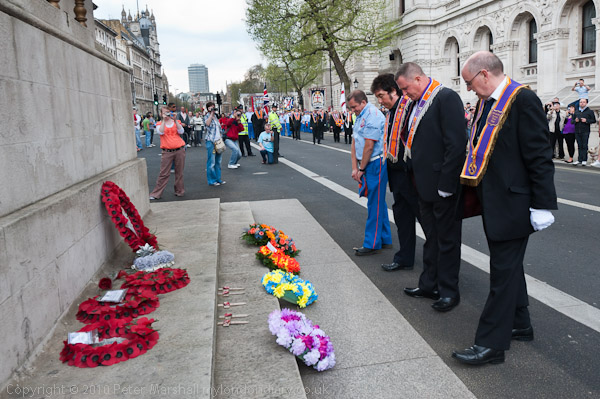
Parades in Northern Ireland are still controversial and seen by many Catholics as deliberately provocative, while many Orangemen regard the Parades Commission, set up to regulate these events as discriminating against them. But here in London they have little political significance and are a colourful celebration of the Irish Protestant tradition.
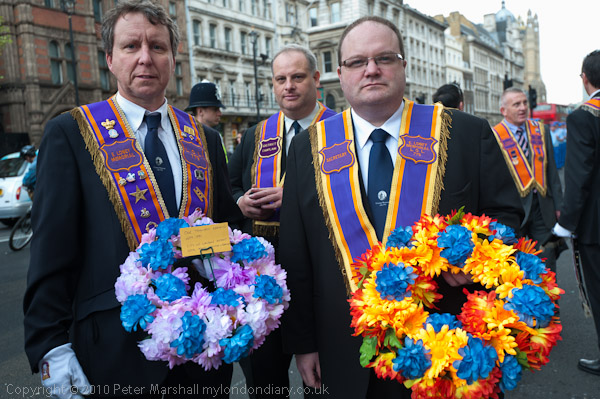
From Millbank the parade marched around Parliament Sqaure and then on to the Cenotaph where wreaths were laid in memory of the fallen and former comrades by the City of London Lodge, two lodges from Glasgow and the Maine Flute Band from Ballymena.
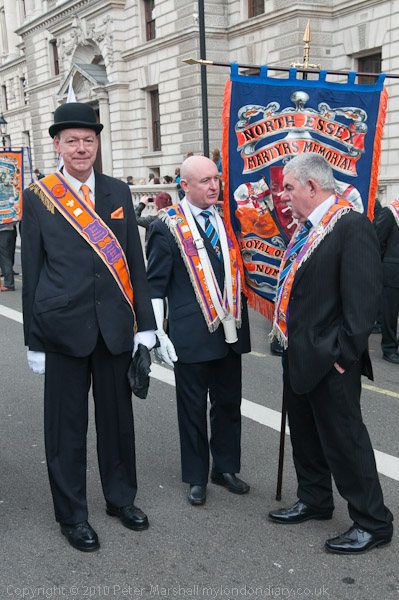
I left them opposite Downing Street where some had gone in to deliver a letter to the Prime Minister before the parade moved on to its end at statue of the Duke of York in Waterloo Place.
More at Orange Parade in London.
Flickr – Facebook – My London Diary – Hull Photos – Lea Valley – Paris
London’s Industrial Heritage – London Photos
All photographs on this page are copyright © Peter Marshall.
Contact me to buy prints or licence to reproduce.
